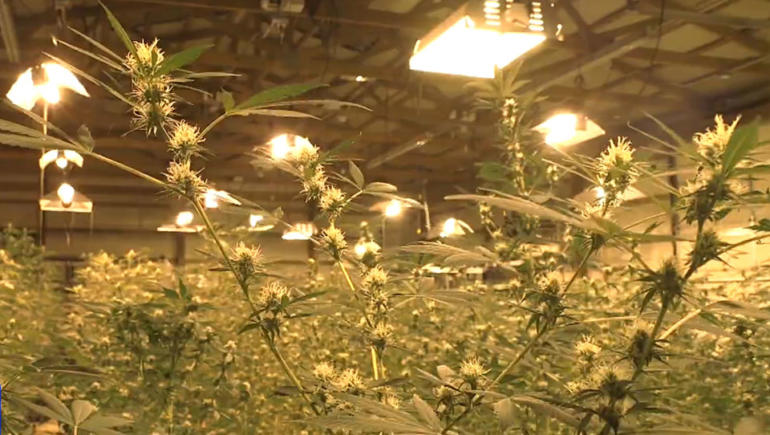The hemp business is booming in the US, in large part because of a hemp plant extract called CBD.
Many people tout CBD for its medicinal and therapeutic qualities but some said regulations have not kept pace.
CGTN’s Hendrik Sybrandy reports.
“This is the isolated CBD here, so it’s basically a white powder,” said Stephen Mueller, the chief technology officer of Mile High Labs during a recent tour of his Loveland, Colorado facility.
The company is one of the largest manufacturers of pure CBD in the world. CBD, short for cannabidiol, is one of many chemical compounds found in cannabis plants. But unlike THC in marijuana, CBD extracted from hemp isn’t psychoactive. In the past few years, the CBD market has turned hemp, long a source for textiles, for example, into a lucrative cash crop. Some compare it to America’s Gold Rush.
“This industry is taking off for a reason,” Mueller said referring to CBD’s perceived medicinal benefits. “The anecdotal stories I just hear day today. We have contractors coming in to install piping and somebody’s telling me about how this helped them.”
Until 2014, hemp could be imported into the U.S. to make and sell a variety of products. China has long been a major supplier. That year’s farm bill finally allowed hemp to be legally grown in this country. Then last year, CBD was taken off the controlled substances list. Still, selling the compound for therapeutic benefits remains forbidden without federal approval. Mueller argued there’s no oversight of manufacturers and no consistent quality.
“The consumer at this point is not sure which brands they can trust, which products they can’t trust,” he said.
He spoke recently at a U.S. Food and Drug Administration hearing called to consider the updated regulation of CBD, already widely available in many different forms. Some question the safety of the compound. Others swear by it.
“I felt much more healthier and not only did I feel it but I knew it,” said Susun Chung, the co-founder of Two Cranes Botanicals, a mostly e-commerce company that sells tinctures made from CBD oil. She said the drops she takes have eased her anxiety and helped her sleep. She also admitted the industry could use some tightening up.
“There’s a lot of bad business happening right now, and there’s a lot of people getting bad product,” Chung said.
Steven Turetsky and Drew Ferguson, who runs Shi Farms and cultivate hemp in Colorado, agree that rules of the road are needed.
“It takes more than just a couple farmers doing the things right to make sure the whole industry is operating in good faith,” Turetsky said. He believes CBD’s potential economic and public health benefits are huge.
“It’s fun to make history,” Turetsky said. “It’s kind of like the American story written all over again.”
A story Mueller helped write. He was the only employee of his business just three years ago. Soon, his company will open a large new production facility and begin making finished CBD products for the consumer.
“There’s huge opportunity there and huge potential,” Mueller said.
Assuming it can be harnessed the right way.
 CGTN America
CGTN America

